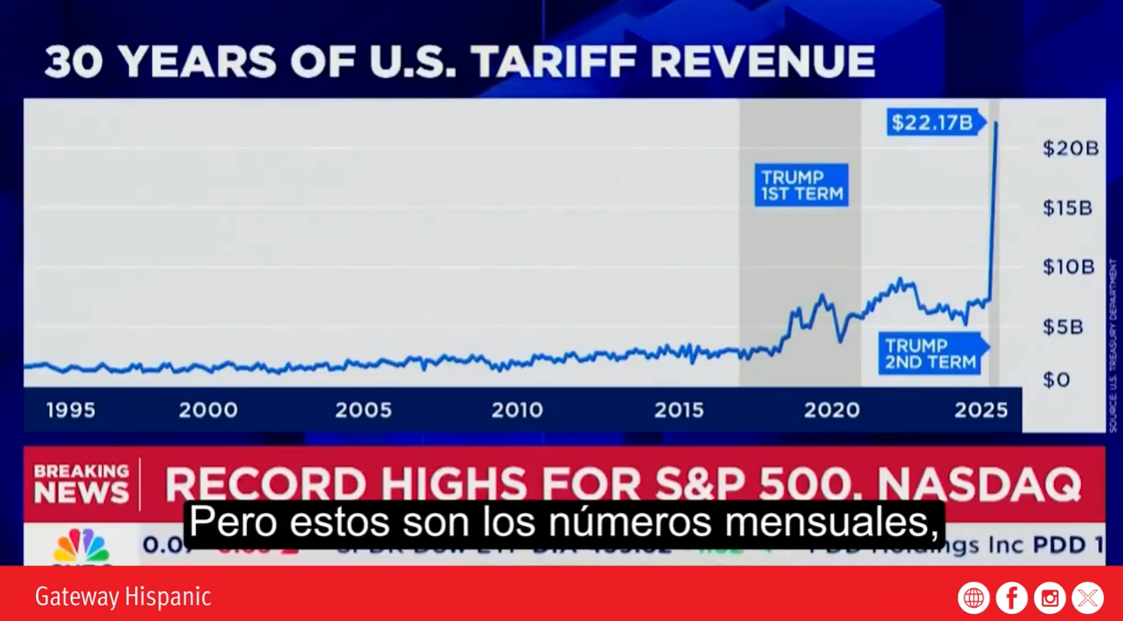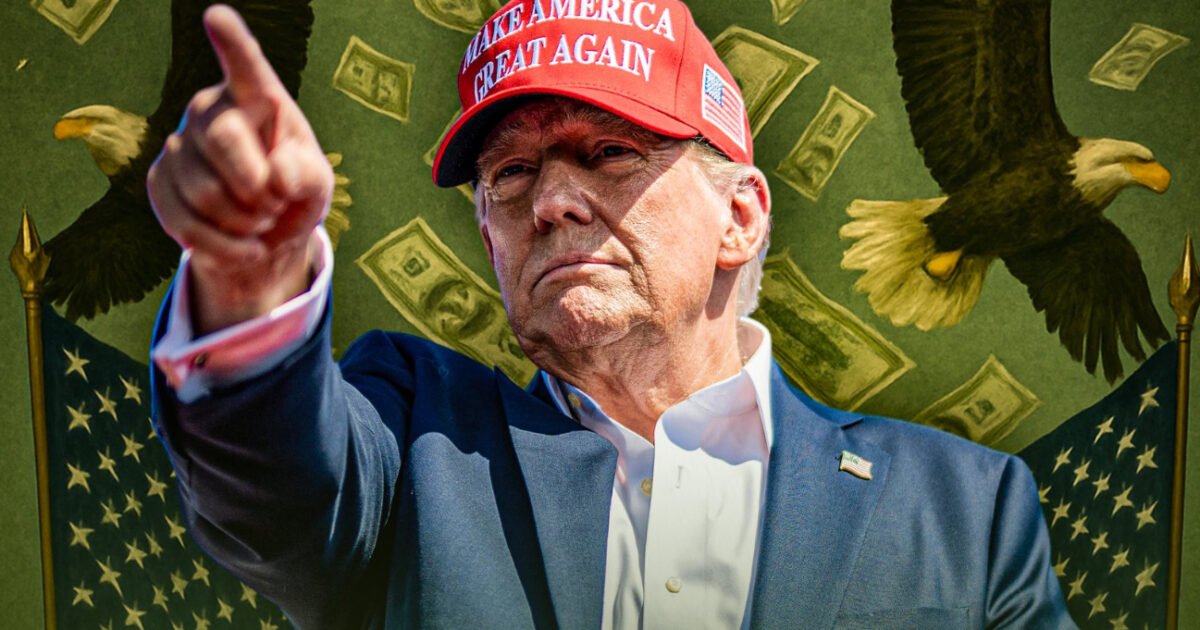
In a stunning display of economic leadership, the administration of President Donald J. Trump has overseen the collection of more than $121 billion in tariff revenue since the beginning of the fiscal year, with projections suggesting that June alone will yield an additional $27 billion.
These figures not only affirm the efficacy of the president’s America First trade policies but also dismantle long-held myths that tariffs necessarily result in higher prices for consumers. On the contrary, as White House officials emphasized this week, the American consumer has not experienced any significant inflationary pressure as a result of this revenue surge.
June Projections Confirm Upward Trend: $27 Billion in One Month
June is shaping up to be another record-breaking month, with $27 billion in new revenue projected to be added to federal coffers. This upward trend validates the Trump administration’s strategic approach to fair trade, which has prioritized domestic production, bilateral agreements, and the strategic use of tariffs as both a fiscal and diplomatic tool.
Speaking at a recent economic briefing, the President’s economic team emphasized the importance of recognizing tariffs not as punitive instruments, but as corrective mechanisms that restore balance in international trade relations.
“This money belongs to the American people. And we’re collecting it without taking it from their wallets,” a senior trade advisor noted.
U.S.–U.K. Trade Deal: A Strategic Economic Victory
Among the major contributing factors to this increase in tariff revenue is the strengthening of bilateral trade agreements, especially with trusted allies like the United Kingdom.
Economist Wilford Frost, present at the White House briefing, praised the administration’s efforts to forge a new chapter in Anglo-American trade relations. Thanks to these efforts, the U.S. now enjoys preferred access to key British goods and services, while maintaining a strong stance against trade manipulation by adversaries such as China, Iran, and even certain European Union actors.
“These deals are about mutual respect. The days of the U.S. being the global ATM are over,” Frost said.
Such agreements reflect a broader policy shift under President Trump — one that prioritizes strategic alliances based on shared values of free enterprise, national sovereignty, and fair play.
Tariff Revenue Is Reviving Its Historic Role
Tariffs were once the backbone of U.S. federal revenue. Today, under Trump’s leadership, they are regaining that role — not as burdensome taxes, but as fair contributions from foreign exporters who wish to access the world’s most prosperous market.
The $121 billion collected so far is already being eyed as a potential funding source for major national initiatives, from border security and defense upgrades to investment in critical infrastructure — all without raising domestic taxes or further inflating the national debt.
Conservative economists argue that, if current trends continue, tariff revenues could exceed $200 billion by year’s end, firmly establishing them as a cornerstone of responsible fiscal policy.
American Consumers Feel No Pain — Just Stability
What makes these numbers even more remarkable is the lack of negative impact on consumer prices. Despite repeated warnings from left-leaning economists and globalist institutions, the Trump administration’s tariff policies have not resulted in widespread inflation.
This is due to several key factors:
Diversified supply chains that reduce reliance on adversarial nations.
Reshoring of manufacturing, bringing jobs and production back to U.S. soil.
Tax incentives for companies that expand domestically.
Targeted tariffs that avoid overburdening essential imports.
The outcome: more federal revenue, lower debt risk, and economic stability for the American middle class.
Conclusion: Trump’s Economic Strategy Is Working
Unlike past administrations that bowed to the pressures of multinational corporations, global bureaucracies, and foreign interests, President Donald Trump has proven that economic sovereignty is not only achievable — it’s profitable.
The surge in tariff revenue — combined with rising consumer confidence and increased foreign investment — confirms what many Americans have long believed: a strong, self-reliant economy is the foundation of national greatness.
While Democrats continue to preach global cooperation at America’s expense, the Trump administration is putting results first. These tariff collections are not abstract numbers. They represent real progress, real independence, and real security for every American.
President Trump has drawn the line. And behind that line, he is writing a new economic narrative — one where wealth stays home, jobs return, and America is no longer exploited, but respected.
